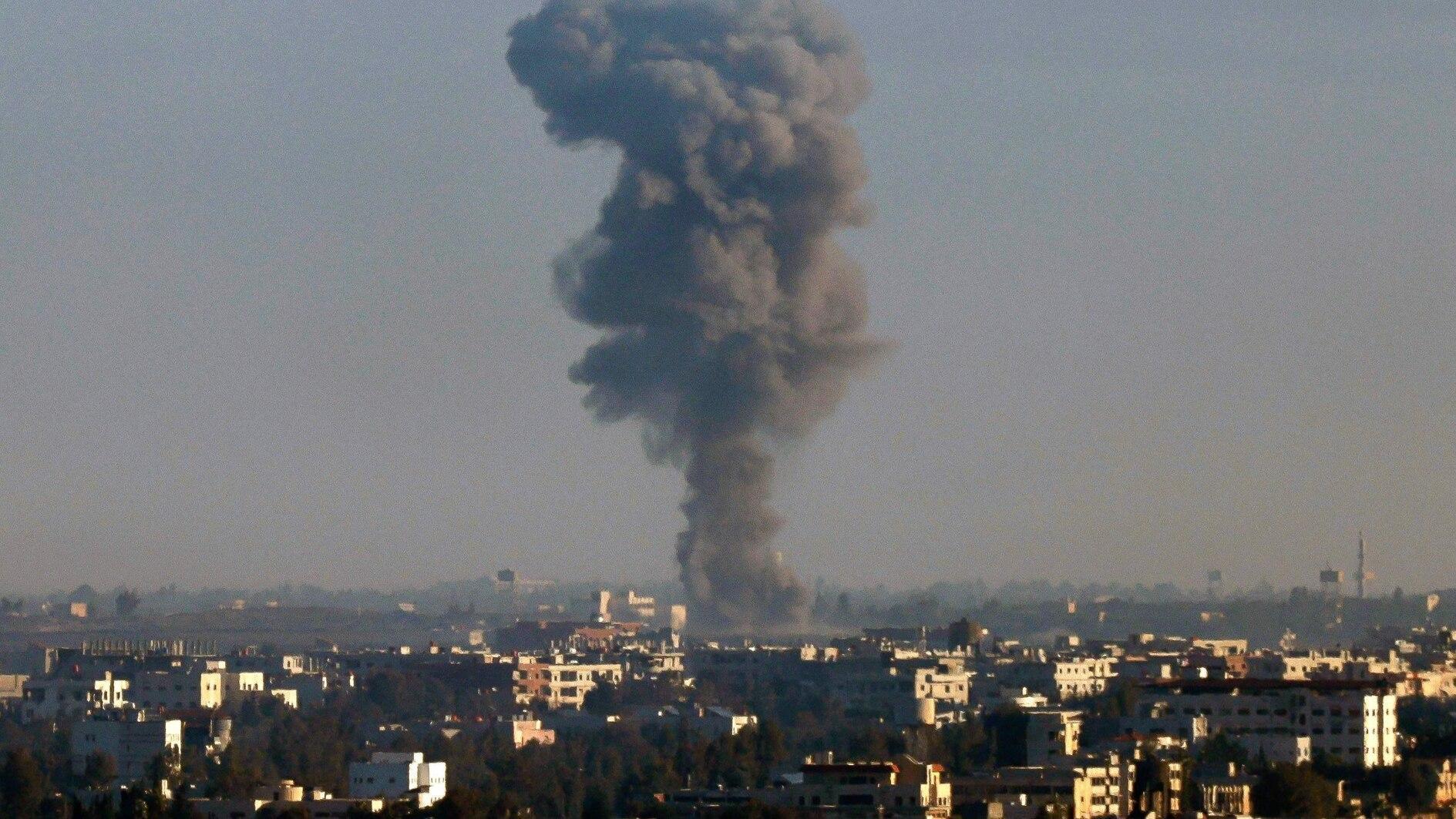Israel has 'destroyed the most important military sites in Syria': war monitor
LONDON

This picture taken from the Israeli-annexed Golan Heights shows smoke billowing above the Syrian Governorate of Quneitra during Israeli bombardment, on Dec. 9, 2024
A war monitor said Tuesday that Israel had "destroyed the most important military sites in Syria" with a flurry of air strikes since the fall of president Bashar al-Assad's government.
Israel, which borders Syria, sent troops into a buffer zone on the east of the Israeli-annexed Golan Heights after Assad's fall, in what Foreign Minister Gideon Saar described as a "limited and temporary step" for "security reasons."
It has also carried out "about 250 air strikes on Syrian territory" over the last 48 hours with the aim of destroying the former regime's military capabilities, according to the Syrian Observatory for Human Rights.
"Israel destroyed the most important military sites in Syria, including Syrian airports and their warehouses, aircraft squadrons, radars, military signal stations, and many weapons and ammunition depots in various locations in most Syrian governorates," the Britain-based Observatory said in a statement Tuesday.
Near the port city of Latakia, Israel targeted an air defense facility and damaged Syrian naval ships as well as military warehouses.
In and around the capital Damascus, strikes targeted military installations, research centers, and the electronic warfare administration.
Early Tuesday, AFP journalists heard loud explosions in Damascus, hours after the strikes reported by the Observatory.
Lebanon's Hezbollah, which had been allied to Assad, condemned the strikes late Monday and lambasted Israel for "occupying more land in the Golan Heights."
Speaking at a press conference in Jerusalem, Netanyahu thanked US President-elect Donald Trump for recognising Israel's 1981 annexation of the territory during his first term and said "the Golan will be part of the State of Israel for eternity".
Israel captured most of the mountainous plateau from Syria during the 1967 Six-Day War and has occupied it ever since, repelling a Syrian attempt at reconquest in the 1973 Arab-Israeli war.
Netanyahu said control of the high ground ensures the "security and sovereignty" of Israel.
Over the weekend, he ordered troops to move into a U.N.-patrolled buffer zone - on the east of the Israeli-annexed Golan - after opposition forces toppled the Assad regime.
The United Nations and Israel's neighbours denounced the move, with a U.N. spokesman on Monday saying Israel's actions were "a violation" of the 1974 disengagement agreement between Israel and Syria.
Saudi Arabia's foreign ministry said seizure of the buffer zone confirms "Israel's continued violation of the rules of international law, and its determination to sabotage Syria's chances of restoring its security, stability and territorial integrity."
Netanyahu said on Sunday that the collapse of the Assad government and the Syrian army abandoning its posts had invalidated the agreement.
Israel's Foreign Minister Gideon Saar on Monday said the takeover of the buffer zone was "a limited and temporary step we took for security reasons."
U.S. State Department spokesman Matthew Miller voiced understanding of Israel's actions which, he said, "are not permanent" and "ultimately, what we want to see is lasting stability between Israel and Syria, and that means we support all sides upholding the 1974 disengagement agreement."
















